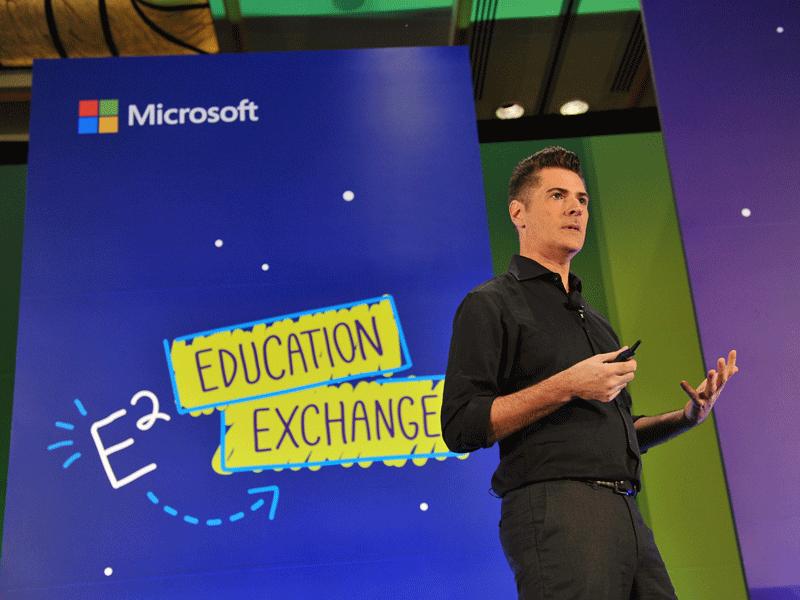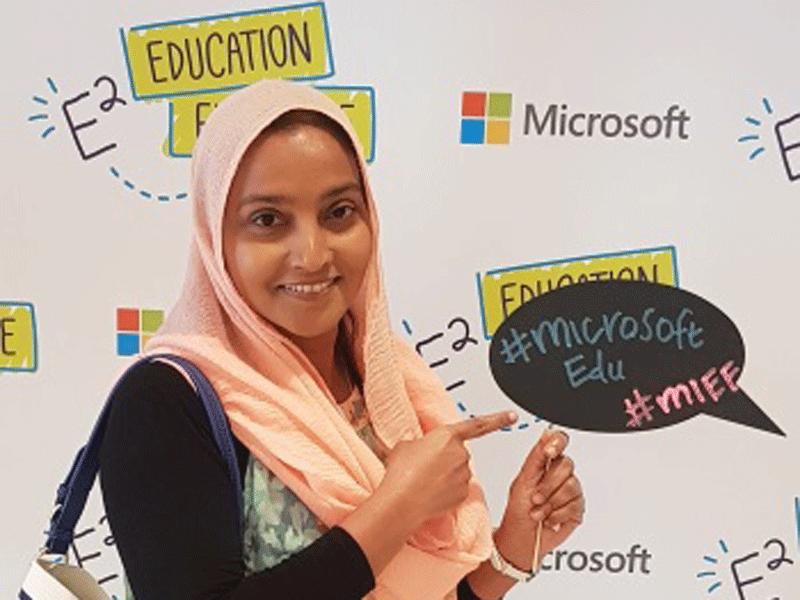Reply To:
Name - Reply Comment

Anthony Salcito, Vice President, Education, Microsoft at Education Exchange
Microsoft hosted its fifth annual Education Exchange (E2) conference with more than 300 educators and education system leaders from a combined 109 countries and territories exchanging ideas to develop innovative experiences in classrooms. School leaders and educators also worked together to explore emerging trends in education that support inclusive classrooms, promote collaboration, and advance modern teaching and learning techniques.
Over the course of three days, Microsoft Innovative Educator Experts were recognized and celebrated for their achievements for combining content, pedagogy and technology in exemplary ways to prepare students for success in the digital age. Ashra Shibly, a teacher from Gateway College, was the only teacher from Sri Lanka present at the event. She was exposed to a platform for education transformation grounded by research from academics, experts, and policy makers.
This year, seven educators from Asia were recognized in five categories for in the Global Educator Challenge. The overall challenge winning team, which comprised of Microsoft Innovative Educators (MIE), Hongju Liu (China) and Quynh Tran Huong (Vietnam) among four others, developed a lesson plan focused on trainee teachers to help develop their understanding of inclusion with the help of Minecraft, while amplifying student voice through feedback in Flipgrid.
“Every educator is a changemaker, making an imprint on the lives of the students who will be the leaders, innovators and creators of the next generation,” said Anthony Salcito, Vice President of Microsoft Education. “Some truly go above and beyond, pushing into unknown territory to bring new technology and techniques into their classroom to inspire and engage their students and prepare them with the skills they’ll need to thrive in the jobs of the future. It is a joy to host this event each year to celebrate educators who are changing education and changing lives.”
Here is the list of winning teams, members and projects:
Overall Winner:
Focusing on pre-service trainee teachers, it encompassed this year’s themes of creativity, inclusion, student voice and collaboration. The lesson was innovative in showing how trainee teachers could develop their understanding of inclusion by integrating the virtual world of Minecraft in to the real world and amplify student voice through feedback in Flipgrid.
Student Voice:
The team was recognized for giving students opportunities to develop and amplify student voice through use of tools like Flipgrid and Sway, whilst building an understanding of art and culture in Paris.
Creativity:
The team’s winning project was recognized for harnessing Minecraft to encourage students to develop creative solutions to inclusive and accessible design.
Collaboration:
The team was recognized for the collaborative approach to their lesson, with all members taking a pivotal role in the lesson creation.
Inclusion:
The winning team created a STEAM (Science, Technology, Engineering, the Arts and Mathematics) lesson where all students were considered and included during planning and implementation.

Ashra Shibly from Gateway College at Education Exchange